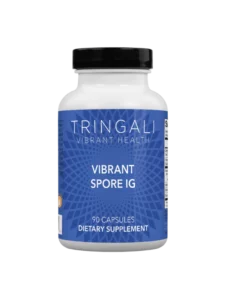Does Gut Health Affect Mood Disorders?
Unless you’ve been living under a rock, you’ve probably heard about the importance of the gut microbiome when it comes to your health. The gut microbiome obviously plays a significant role in the digestive health. But, it also plays huge roles in the immune system, skin health, and heart health. Gut microbiota also play an important role in the bidirectional communication between the gut and the central nervous system, which means that it has a significant impact on the brain. This important communication seems to suggest that gut health affects mood disorders, too!
In the past, scientists believed that the brain controlled everything. However, numerous studies have shown that the microbiota, or the communities of bacteria and fungi that live in the gut, can impact our brain and even our emotions. In fact, the gut and the brain are constantly communicating (bidirectionally) through neural, inflammatory, and hormonalsignaling pathways.
Prevalence of Mood Disorders
First, let’s dive into some statistics. Estimates show that nearly 1 in 5 Americans have a mental illness, mood disorders included. Around 20.9 million Americans adults aged 18 and older have a mood disorder.
Data from the National Comorbidity Survey Replication reveals the prevalence of mood disorders, showing that:
- Among U.S. adults 18 and older, around 9.7% had a mood disorder in the past year
The prevalence of mood disorders in a given year was higher for females (11.6%) than males (7.7%) - An estimated 21.4% of adults will experience a mood disorder at some point in their life
45% of those with a mood disorder will face severe impairment
Given the prevalence of mood disorders in the United States, researchers are continuing to explore the gut microbiota in patients with mood disorders.
The Gut Brain Connection
Mounting evidence suggests that gut health affects mood disorders. Gut microbiota can influence the brain function via neuroimmune and neuroendocrine pathways as well as the nervous system. The gut microbiome is an ecosystem that is highly beneficial in maintaining human health. This incredible environment of bacteria and fungi modulates brain function, while the brain in turn interacts with gut bacteria via neuroimmune, neuroendocrine pathways, and the nervous system. This bidirectional communication system is commonly called the brain-gut-microbiota axis.
Through this constant communication, certain signals from the brain can influence physiological effects in the gut. Have you ever felt sick to your stomach when you hear distressing news? This is your brain directly influencing the effects of your digestive health. Because this communication is “bidirectional,” this means that your gut is also speaking to your brain. Messages or signals from the gut can influence the brain function with regard to reflex regulation and mood states (2).
This is also known as the “fight or flight” response. Cortisol is a hormone that is secreted by the adrenal glands when the body is experiencing stress. Excessive levels of cortisol in the body can negatively impact many of the body’s systems and has a significant effect on the digestive system. Stress negatively affects gut motility. Constipation or diarrhea can both occur. It can also lead to development or exacerbation of various gastrointestinal disorders such as IBS, IBD, GERD, and more. Additionally, stress can adversely affect intestinal permeability. Your intestinal lining prohibits the passage of certain antigens, toxins, and other harmful bacteria from entering into the bloodstream. During stress, this intestinal lining increases permeability. Also known as “leaky gut,” this increase in permeability can result in inflammation and irritation to the mucosal lining.
The Neuroendocrine Pathway
So, now that we understand how stress can affect your gut, how does it work the other way? How does gut health affect mood disorders? Gut microbiota can secrete a series of neurotransmitters, such as γ-aminobutyric acid (GABA) acetylcholine, serotonin, dopamine, and histamine. In fact, more than 90% of the neurotransmitter, serotonin, in the human body is produced in the gut! Seratonin is the is the key hormone that stabilizes our mood, feelings of well-being, and happiness. So, if the gut is balanced and working as it should, seratonin levels will also be balanced and stable. The neuroendocrine pathway is how gut microbiota modulate brain function and behavior.
More than 90% of the neurotransmitter, serotonin, in the human body is produced in the gut!
Where the Research Stands
Research on the ways that gut health affects mood disorders is still in early stages, but growing evidence shows changed gut microbiota in patients with mood disorders, which may play an important role in disease pathology (1). If you are interested in reading more about the research being done on the way gut health affect mood disorders, I highly suggest this review on our current understanding of gut microbiota in mood disorders.
How to Support Your Gut Health:
1. Take a Probiotic:
Taking a daily probiotic is my number one tip for maintaining a balanced ecosystem in your gut. Probiotics work by increasing the good bacteria in your gut. The more beneficial bacteria in your gut, the less room there is for the bad bacteri
Vibrant Spore is a spore-based, broad-spectrum probiotic formula designed to promote a healthy gut microflora, protect mucosal integrity, and relieve small intestinal bacterial overgrowth (SIBO). Uniquely included in this formula are serum-derived bovine immunoglobulins that bind to and eliminate microbes and toxins that are common in SIBO.
2. Eat a Healthy/Low-Inflammatory Diet:
Find out which foods you are sensitive to, and try to build your meals around the following:
All Vegetables (except night-shades*) fresh, frozen, or freshly juiced, especially cruciferous vegetables, such as cabbage, broccoli, cauliflower, brussels sprouts, kale, collards, radishes, watercress.
Preferably whole and fresh or un-sweetened frozen Fruit. Preferably low-glycemic, such as blueberries, apple, plum, apricot, etc.
Organic/Pastured/Grass-Fed: Poultry (chicken, turkey, duck, goose), lamb, rabbit, bison, venison.
Wild caught: coldwater fish (sardines, salmon, halibut, etc.)* All legumes (if tolerated), dried peas, beans, lentils
Oils: Extra virgin olive oil, unrefined coconut oil, butters (ghee, pumpkin, squash seed), salad dressings (made from allowed ingredients, preserva-tive/additive free).
Nuts: (raw nuts if tolerated and practitioner approved), nut butters (not more than 2 tbsp unsweetened almond butter per day.
Other: Avocados!!!!
3. Reduce Your Toxic Burden:
We are all exposed to a decent amount of toxins on a daily basis. Environmental toxins like mold and heavy metals are in our homes and in our tap water. Pesticides/insecticides are in the foods we eat. Toxins are in the cleaning products we use to clean our house, and even in the ones we use to clean our bodies. When our bodies become overburdened with these toxins, they accumulate in our body and affect our microbiome\’s ability to filter them out. Limiting exposure to these toxins is the best way to reduce your toxic burden. However, removing these toxins is pivotal to achieving and maintaining optimal health.
Check out the following Tringali Vibrant Health blogs that focus on reducing your toxic burden.
- Detoxing with HOCATT Ozone
- Toxic Mold Exposure Symptoms
- Detox Mold From Your Body
- Infrared Sauna Benefits
- What is Chelation Therapy? (Heavy Metal Detox)
4. Supplement with Mood Support Supplements
Many supplements can support overall central nervous system health and the synthesis of neurotransmitters, (including Serotonin).
A couple of my favorites are:
Mood Food by Xymogen
Mood Food™ combines key B vitamins, including 5-MTHF as Quatrefolic® and Albion® di-magnesium malate, with critical amino acids to support overall central nervous system health, calmness, and a positive mood.*
- Supports Nervous System Health*
- Supports a Healthy Mood*
- Supports Synthesis of Neurotransmitters, Including Serotonin*
- May Help Reduce Carbohydrate Cravings*
Sleep Time Advanced from Nutritional Frontiers
This supplement is formulated to help support the neurotransmitters dopamine and serotonin, which have a role with sleep cycles and anxiety.
• Sleep support
• Support for anxiety relief
Book an appointment with me or Elizabeth Tringali, PA-C today to learn about more ways to support your gut health: 561-283-1166
Do You Need to Heal Your Gut?
If you are experiencing any of the following symptoms, you may indeed be suffering from a gut imbalance/dysbiosis that could affect your immune health:
- bad breath (halitosis)
- upset stomach
- nausea
- constipation
- diarrhea
- difficulty urinating
- vaginal or rectal itching
- bloating
- chest pain
- rash or redness
- fatigue
- having trouble thinking or concentrating
- anxiety
- depression
Your gut health is the first line of defense against bacteria, viruses, and other pathogens. It keeps our waistlines thin, our immune system working optimally, and mounting evidence suggests that it keeps our minds working well and our mood balanced. Trust your gut, and trust in the VIBRANT health it can bring to your body.
If you have any questions, comments, or concerns please feel free to email us at info@tringali-health.com or call us at 561-283-1166.
Kunal Gandhi, M.D.
Request a Consultation:
Are you ready to achieve optimal, VIBRANT health? Leave your name and number below to request a consult with any of our practitioners. Or, call us at 561-283-1166 today.
*These statements have not been evaluated by the Food and Drug Administration. These products are not intended to diagnose, treat, cure, or prevent any disease.

Kunal P. Gandhi, M.D.
With a background in family medicine and a deep understanding of ayurvedic medicine, Dr. Kunal P. Gandhi brings a multi-specialty approach to Tringali Vibrant Health. Focusing on women’s health, reproductive health, gut health, mold-toxicity, and anti-aging medicine, she abides by the tenets of functional medicine that focus on identifying the root causes of disease.










